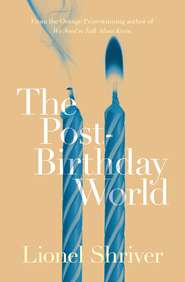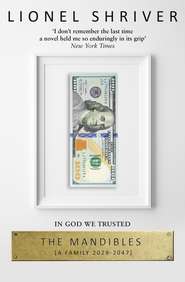По всем вопросам обращайтесь на: info@litportal.ru
(©) 2003-2024.
✖
Checker and the Derailleurs
Автор
Год написания книги
2018
Настройки чтения
Размер шрифта
Высота строк
Поля
“Check taught us the word yesterday,” he explained meekly. “Broken glass.”
“My, my,” said Syria. “A for the day, rock star.” She stopped and looked down at him. “You’re cute.”
“Thank you,” said Caldwell formally.
“You tell your drummer friend, one more hour, he’s fired.”
Bang. She vanished.
“The Towering Inferno!” exclaimed Caldwell.
They marveled over the apparition until Checker returned.
When told of his employer’s visit, Checker seemed pleased. Before he hurried out again, Check assured the band that Rachel was all right now—once more, air had been turned to branches.
Sorry I’m late,” Checker panted. “I had a problem.”
“What do you know about problems?”
“Plenty.”
She took off her glasses, sifting Checker up and down through a queer mesh; her eyes were green. She seemed to see him differently from other people. Checker felt exposed, and pulled his jacket closed, raising its collar around his neck.
“Sweep.” She handed him a broom.
“When do I get to work with the glass?” Check shouted. All their conversation was loud. It had to be. The roar of the furnace was voracious.
She didn’t answer, and from then on, apart from giving him orders, she ignored him completely. Once again she was at her own work, which soon sufficiently absorbed her that she didn’t notice he’d run out of things to do. Checker settled quietly behind her to watch.
Syria gathered a lump of molten glass, then swung the pipe like a pendulum until the glob elongated; it cooled and darkened, and she returned it to the top of the furnace, propping the pipe on a stand and rolling it in quick, regular circles until the shaft was warm again. She repeated this process until the glass stretched into a rod with a knob on its end; she hung it glass down and made another form like it on a separate pipe. After reheating the first, she plunged the two shafts together, filed into the glass on one pipe, and cracked it off clean with a rap on the metal. Though working with a huge amount of material that must have been heavy, she manipulated the now three-foot-long piece like balsa wood, swinging it with grace and, he could see, pleasure, feeling its momentum, finding the fulcrum point on the pipe. All her motions were rapid and sure, without excess; they reminded him of good basketball. They reminded him of good drumming. They reminded him of anything he had ever done right.
Syria hefted the pipe over to a chair with flat arms and rolled it in front of her with her left palm, all the while shaping the middle knot with a wet wooden cup. Steam rose from the glass, hissing at her touch, a whisper of pain—cold water and hot glass don’t mix, but Syria would marry them, anyway. Checker remembered how she tended his cut: this will hurt but it will heal you. She was a person who would do something terrible for your own good.
It was only when she’d cracked the shaft into the annealer that Check realized that while he’d been waiting for her to blow a vase, a bowl, she wasn’t making a vessel. She was making a bone.
At last Checker noticed a dark corner room, and ducked inside to turn on the light. There they were. All over the walls, stacked shelf after shelf: glass bones. Clear, glistening femurs. Ice-blue rib cages, fragile, almost breathing. Strange assemblages of knuckles and kneecaps, like remnants of a mass grave turned mysteriously to crystal—deep sad greens and buried ambers. Some of the longer bones were distorted, curved, as if they were melting.
Checker felt dizzy. It was like walking into a glass morgue, shuddering and deadly, but beautiful, too, shimmering in the glow of the low-wattage bulb. The walls hurt to look at. Nothing should be that disturbing and that attractive. As his intestines began to gather, he closed the door tightly behind him, like shutting the top of Pandora’s box.
Checker felt woozy and weaved to a nearby bench.
“So what was so funny?”
“What?”
“When I was working. You laughed.”
“The way you moved,” he remembered. “I played a song in my head and you danced to it.”
She smiled. “Which one?”
“‘Burning Down the House.’”
“Three-hun-dred-six-ty-five-de-grees. It’s hotter than that.”
“You know the Heads!”
“What do you think I grew up on, Frank Sinatra?”
“Sorry.” Checker took a deep breath.
“You don’t look well.”
“Give me a second.” The sensation was receding, but not quickly enough, as if he’d woken a sleeping dragon—even if it only yawned and went back to sleep, the ground rumbled.
“So you went into the crypt.”
“Yes.”
“And?”
“I don’t know.”
“What a critic.”
“That room is dangerous!” he burst out.
“Sure,” she said casually. “Being alive is dangerous.”
“The red ones.”
“Yes?”
“The red ones,” Check repeated, shaking his head. “I don’t know.”
Somehow she seemed pleased with his reaction, though Check had said nothing nice.
“You sell those things?”
“Not very hard. Nobody understands them. But once they’re cooled they don’t matter. I like hot glass.” Her eyes glittered like the sleet that afternoon.
Checker returned the next night, on time. Rahim was on his mind, for earlier he’d visited the Iraqi in the basement, where it was hot and dank and boring, and they couldn’t think of any girls. Yet it had been impossible to stay moody, with the rise coming up through his All-Stars all the way to his throat. In the park the car radios had played the right songs, marathon; at six o’clock the sky was purple; the pavement was still icy from Sunday’s sleet, radiant with orange streetlights. The river swept the skyline into dizzy, turgid swirls.
The broom swished around the concrete, curling dust like whirlpools under Hell Gate, glass tinkling in its wake like the shores of the East River; Checker could feel every individual hair of the brush stroke the floor. Unloading the annealer, he loved all the student pieces. Lurching off center, bubbled and drooped, each vase and goblet charmed him, each bowl would hold ripe fruit.
All the while he could feel Syria as heat source move from room to room. He liked it best when he was perfectly between the two of them, the woman and the furnace; the sweat would pour evenly down his body. Each drop traced his spine like the tip of a finger.
Later, the cleanup done, she showed him how to work the furnace; Check felt on friendlier terms with the animal once he could control it. Finally she let him thread one of those sturdy pipes into the mass itself, and wear his own pair of glasses. The heat stung; he wondered how she got used to it. His face stiffened and his knuckles sung. Sweat showered down his chest. Even with the dark glasses he couldn’t focus on the glass itself—it shifted uneasily before him, rippling like flesh. He could tell when the pipe hit the glass only from a tugging, a nagging when he pulled it back. Awkwardly he withdrew a drizzling glob, like Little Jack Horner pulling a plum from a pie.











